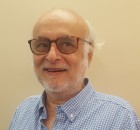About us
Get to know the team behind THEMBA
Team
Jeremy Woods
is a Reader in the centre for environmental policy at imperial College London. Recently, he has been working on the development of Integrated Sustainability Assessment tools for application to challenging value chains, including biomass energy and biofuels working with the UK’s Department for Energy and Climate Change and the Financial Times. Dr Woods has developed research interests into the interplay between development, land-use and the sustainable exploitation of renewable and non-renewable resources, in particular biomass energy. He coordinated a number of large EU-funded research projects and networks, has participated in two Royal Society working groups and acted as a panel member of its Leverhulme and DfID Africa Research Capacity Building programmes.
David Matthews
David Matthews is a sustainable energy engineer with over 30 years’ of business and engineering experience. After finishing his first degree in mechanical engineering, David undertook at graduate apprenticeship working on diesel fuel injection equipment where he also studied a master’s degree in manufacturing system engineering. After a short career break as a ski guide, David headed to Africa for 6 years building schools and electrifying in townships and studying for a further master’s degree in renewable energy engineering.
David returned to the UK in 2000 and established a renewable energy company that installed, designed, supplied and trained on various sustainable systems. This lead to work in the trade association sector and David has been the CEO of STA & GSHPA, the chair of the MCS management panel & the BSE T-Level Panel and is now the IDHEE CEO.
Sarah Hemstock
Sarah is currently Programme Leader for Geography at Bishop Grosseteste University, Lincoln, UK and was an author and adviser to the Alofa Tuvalu “Small Is Beautiful” project—recognised by UNESCO as one of its “Decade of Achievement Projects”. She authored and led the €6.3 million multi-award winning European Union Pacific Technical Vocational Education and Training on Sustainable Energy and Climate Change Adaptation Project (EU PacTVET) project at the Pacific Community (SPC), leading activities in 15 Pacific least developed countries. She is an Adjunct Fellow of the University of the South Pacific where she led the €8 million Global Climate Change Alliance Project. Her interest in the Pacific region began as a consultant for Imperial College researching biomass resources in several Pacific small island developing states. The majority of her recent work experience relates to practical resource management and resilient development issues relevant to some of the world’s most disadvantaged communities and vulnerable ecosystems. Over the past 20 years she has worked on biodiesel, bioethanol, CHP, gasification, traditional biomass energy and biogas projects with communities in Sub-Saharan Africa, Europe, India, South America, Tuvalu, Fiji, Vanuatu and the US. Sarah is a founder of the Pacific Regional Federation of Resilience Professionals and was a member of the EU Intra-ACP Global Climate Change Alliance Steering Committee; and numerous international project steering committees such as the Pacific Climate Change Migration Steering Committee – UNESCAP, and Coping with Climate Change in the Pacific Islands Region (CCCPIR) - GIZ. In 2010 she was made Government of Tuvalu Honorary Ambassador—Officer for Environmental Science.
Peter de Groot
has worked in development for 20 years, mostly on the utilisation and conservation of natural resources, trying to find practical solutions that will make a difference. In renewable energy work has included training in the design and maintenance of solar systems for rural areas, the development of a training manual for the installation and maintenance of small solar home systems, the development of standards for system components, and solar drying. .
Frank Rosillo-Calle
Is a Research Fellow at Imperial College London’s Centre for Environmental Policy. He obtained his doctorate in biological sciences, at the universities of Aston, UK, and Campinas, S.P., Brazil, where he investigated Brazil's ethanol fuel programme. He has over 20 years experience in bioenergy research, and has carried out many research projects and consultancy work in Europe and rest of the world. Research areas include biomass production and supply, energy and carbon flows, ethanol fuel, environmental impacts and policy analysis. He has taught at various universities nationally and internationally, and published extensively in these areas.




